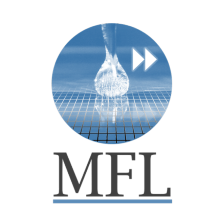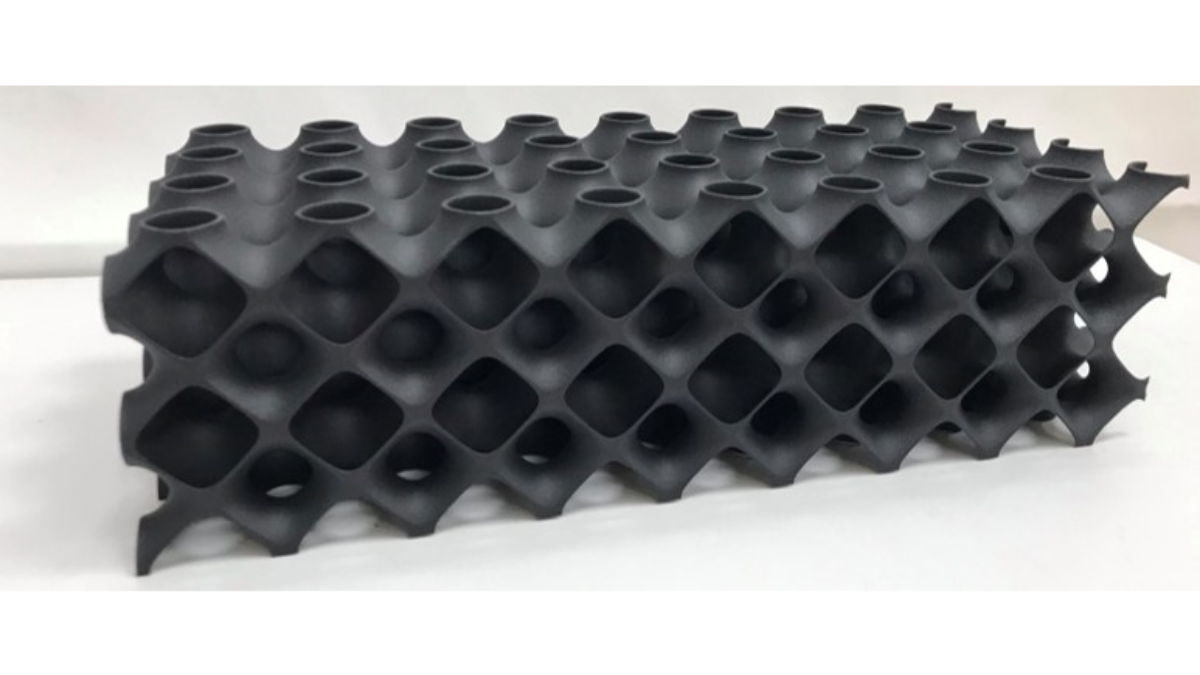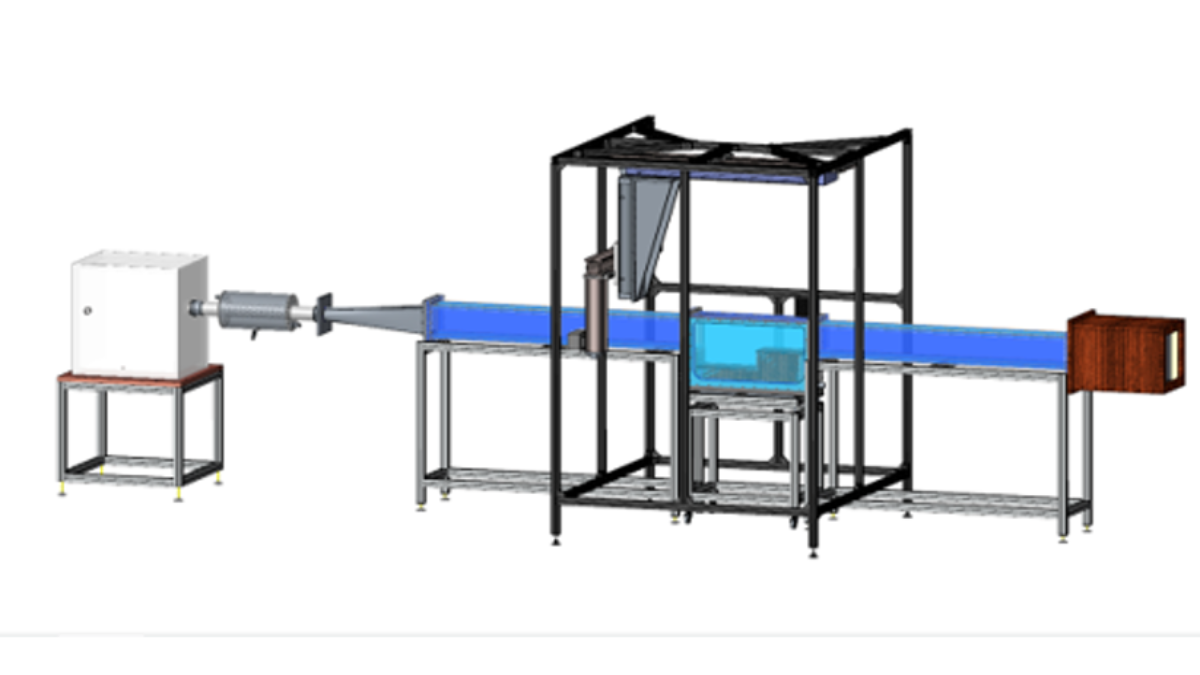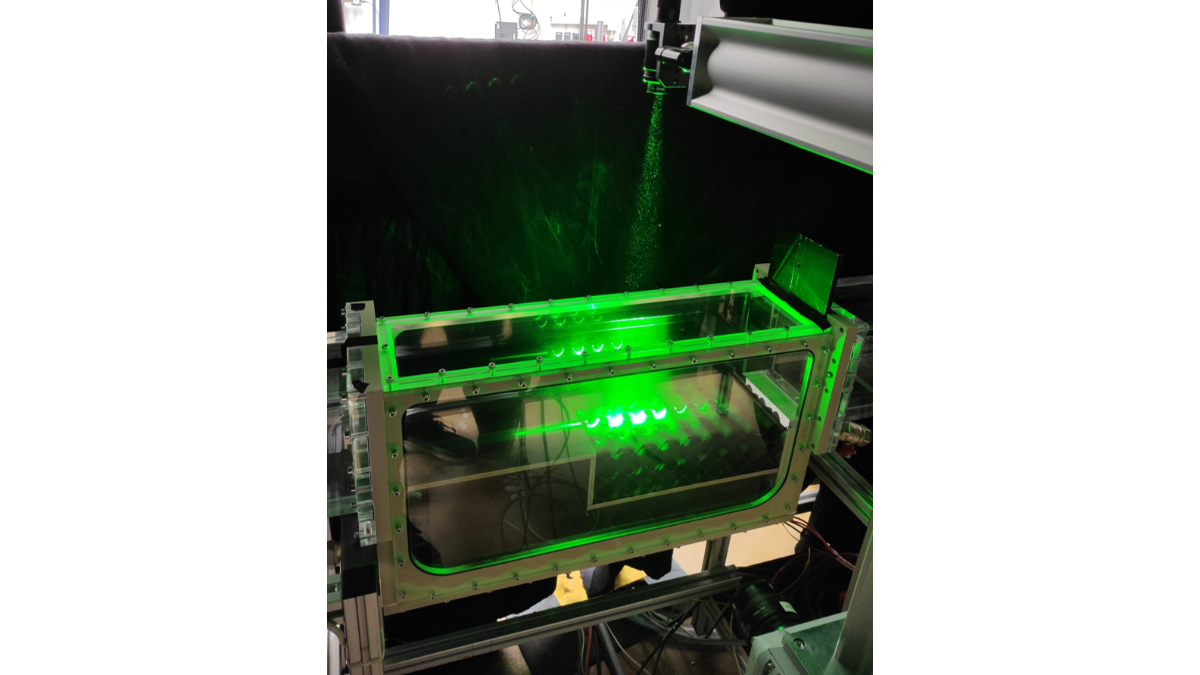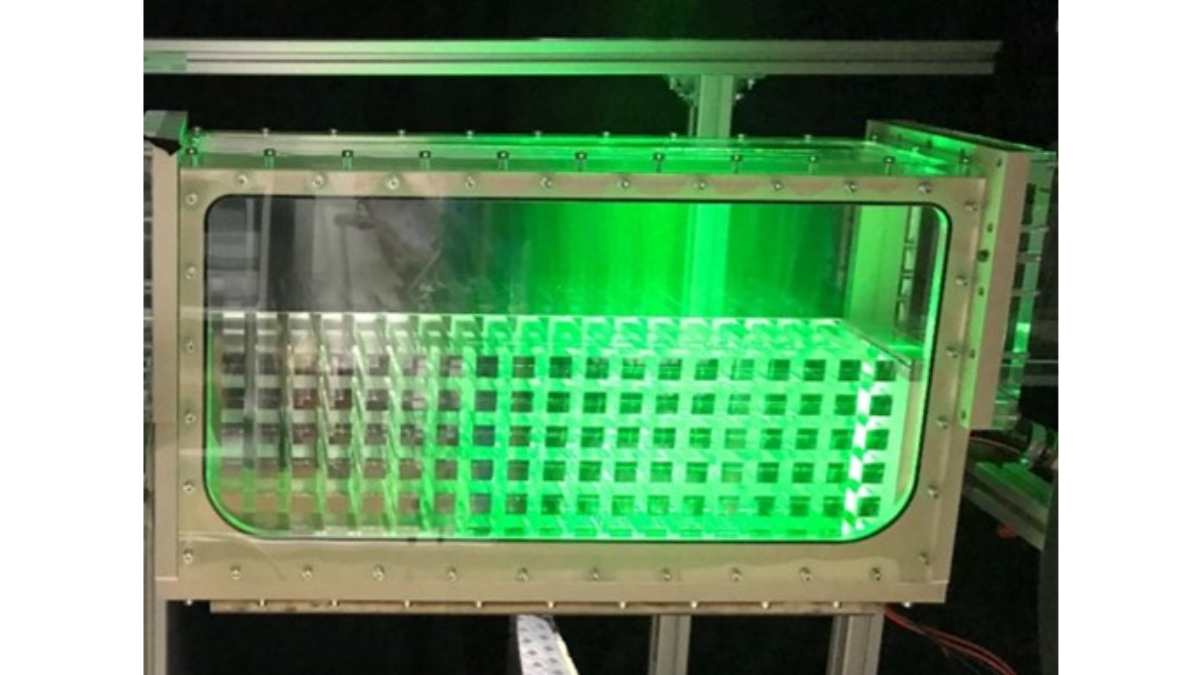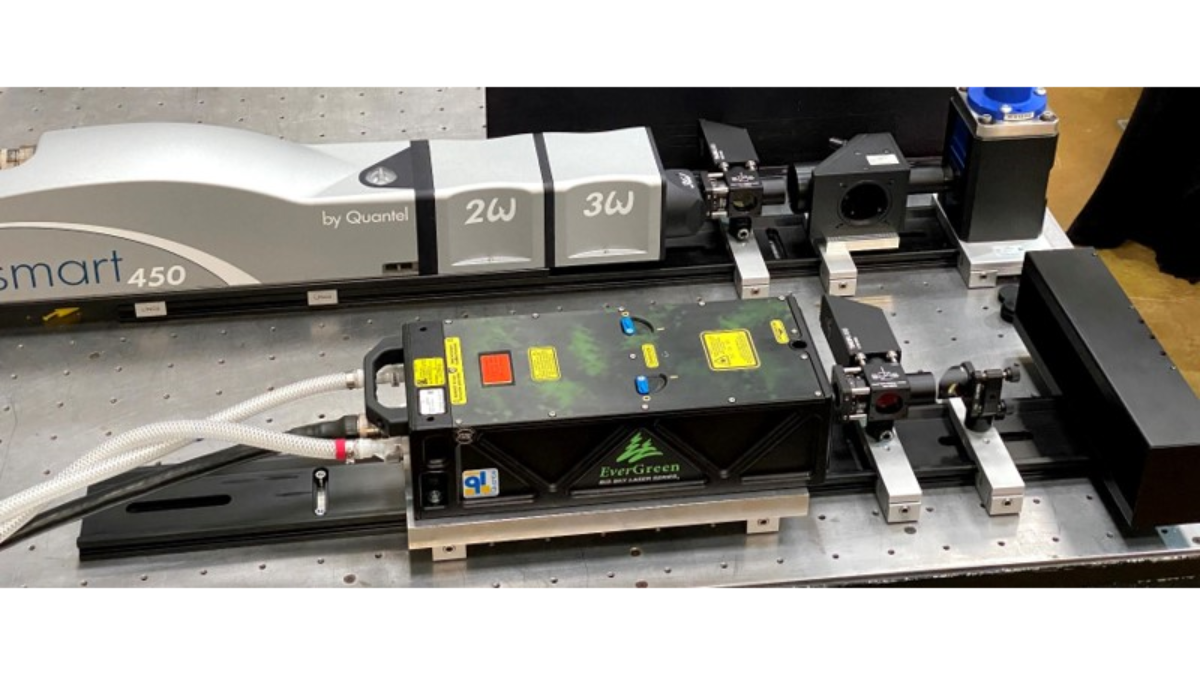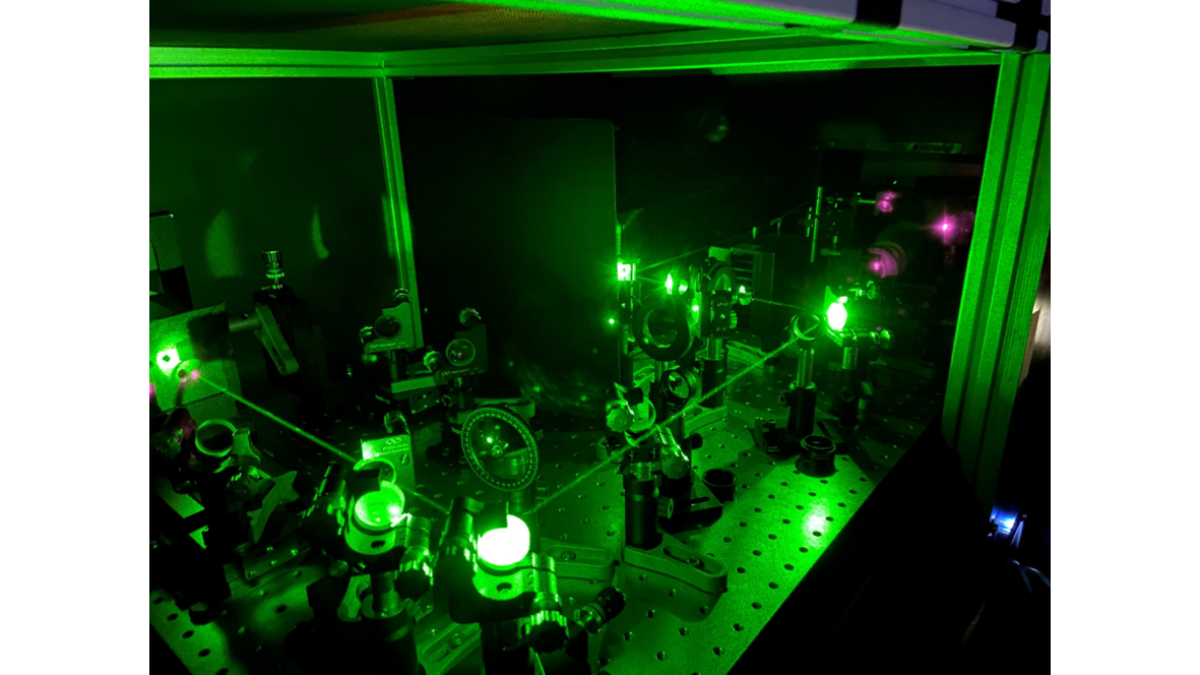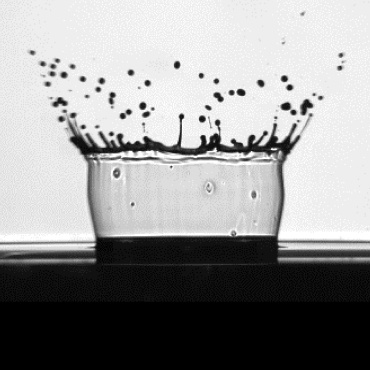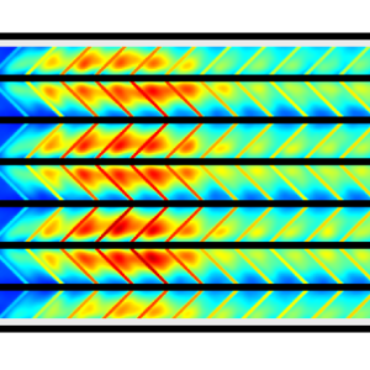What is the MFL?
The Multiphase Flow Lab (MFL) at the University of Stuttgart was established in 2018 by Dr. Grazia Lamanna and Dr. Rico Poser. It bundles the experimental infrastructure and expertise for measurements in single and multiphase flows available at the Institute of Aerospace Thermodynamics (ITLR). Furthermore, the MFL acts as a shared facility for scientists at the University of Stuttgart who are mainly interested in multiphase flow phenomena and heat transfer investigations, both experimentally and numerically.
Philosophy of the MFL
The philosophy of the MFL is to integrate high-end equipment seamlessly into the ITLR infrastructure.The goal is to assure an efficient, sustainable and cost-effective usage of resources. The MFL includes optical methods for measuring the flow field (e.g. time-resolved Particle Image Velocimetry (PIV) and Laser-induced Thermal Acoustics (LITA)). In addition, temperature fields in gaseous and liquid flows can be obtained by using both particle-based and particle-free optical measurement techniques (e.g. Thermographic PIV and Infrared Thermometry (IRT)). A central part of the MFL activities is dedicated to improve the accuracy of data processing by including AI-methods to increase the spatial resolution. Moreover in collaboration with Committee for Research Data & Software Management and PN 2-6, a data management concept will be implemented to allow fruitful data exchange within and outside EXC-2075. Specifically, the objective is to achieve the standardisation of data exchange formats, in order to facilitate the usage of experimental data and metadata for validation purposes and data-driven model development.
Research fields
As a shared laboratory the MFL combines a wide range of interesting research fields especially experimental measurement in frastructure which mostly focus on single and multiphase flows. Special focus is provided on the characterisation of the interfacial flow, ensuing from the interaction between a porous media and a fluid layer in crossflow configuration. The MFL overall scope of services entails a broad spectrum of measurement techniques and evaluation methods.
In the Droplet Dynamics research field at the ITLR remarkable high-speed visualization possibilities combined with e.g. particle-based methods, several droplet sizing techniques and optical methods allow us to investigate related phenomena in multiphase flows with high spatial and temporal resolution. In addition Direct Numerical Simulations (DNS) of single droplets, droplet collisions and groups of droplets with the ITLR in-house code Free Surface 3D (FS3D) are performed. The Heat Transfer research field at the ITLR extends the previous methods by including the possibility of measuring temperature, concentration and velocity fields in gaseous and liquid flows precisely, both experimentally and numerically.
For both research fields an understanding of the high-resolved physical, partially time-dependent processes is essential for further expertise with regard to multiphase flows. For this purpose, Quality Assurance is essential to provide supplementary measurements and evaluation methods to meet the high demand for accurate and spatiotemporally highly resolved measurement data. We achieve this by applying standardized methods of measurement uncertainty determination (e.g. GUM, Monte Carlo), calibration methods and devices (e.g. temperatures, pressures, colors) and a range of specialized hardware and facilities. Last but not least, a central part of the MFL is Data Processing which ensure proper evaluation methods and numerical procedures for pre- and post-processing the experimental data.
News
Overview
Contact
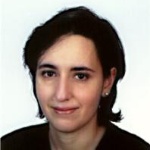
Grazia Lamanna
PD Dr.-Ing.Wissenschaftliche Mitarbeiterin - akad. Direktorin

Rico Poser
Dr.-Ing.Wissenschaftlicher Mitarbeiter - akad. Oberrat


